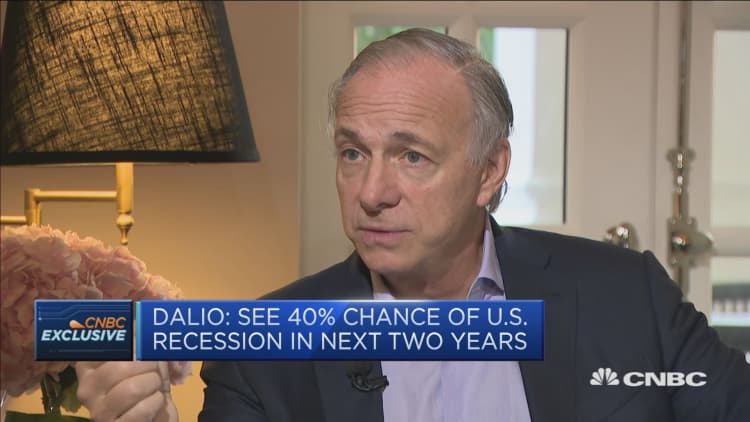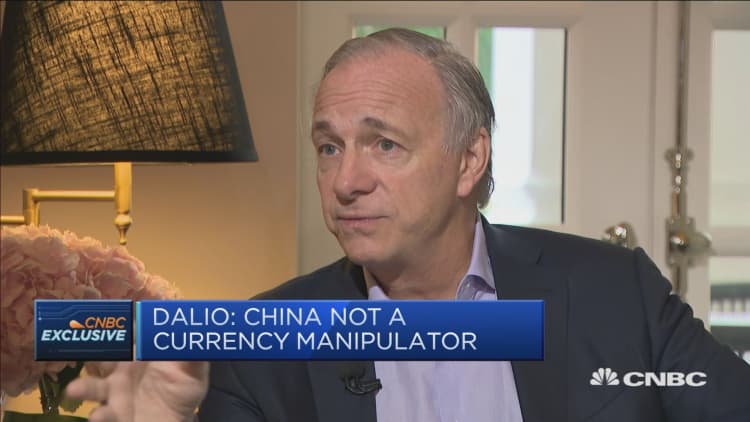
The U.S. economy is taking a turn for the worse and there's a 40% chance America could experience a recession before the 2020 presidential election, according to Ray Dalio, founder of the world's largest hedge fund, Bridgewater Associates.
"Recessions are always inevitable, the only question is: 'When?'" Dalio told CNBC's Christine Tan on Thursday.
"I think that in the next two years, let's say prior to the next election, there's probably a 40% chance of a recession," he said on "Managing Asia."
Fears of a looming recession in the U.S. were heightened after a closely watched indicator flashed a warning signal: The yield on the 10-year Treasury note briefly broke below the 2-year rate early Wednesday. That bond market phenomenon has been a reliable early indicator for economic recessions in the past.

That's coming at a time when an ongoing fight between the U.S. and China threatens global trading activity and pushes back investment decisions among businesses.
Some economies are already on the verge of a recession. Gross domestic product in Germany — Europe's largest economy — shrank by 0.1% in the April-to-June period compared to the previous quarter. In Asia, Singapore — a major financial center — also reported economic contraction in the second-quarter of this year.
'Currency wars'
An economic slowdown globally will prompt central banks, including the U.S. Federal Reserve, to ease monetary policies even further, said Dalio. But cutting interest rates this late into the economic cycle may not be effective in stimulating the economy, he added.
If that happens, economies around the world will likely resort to weakening their currencies to boost growth, he said. A weaker currency makes exports relatively cheaper and, in some cases, benefits financial markets.
"So, I think we are entering an environment that, over the next three years, you will see more currency wars. And whether there are overt interventions or whether their monetary policies that produce that," said Dalio.


